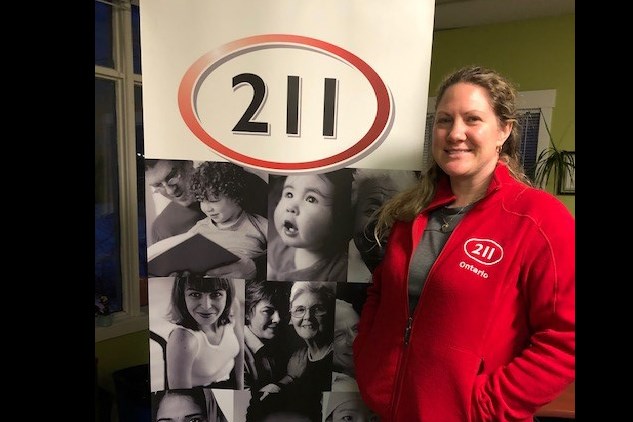NEWS RELEASE
COMMUNITY CONNECTION/211 CENTRAL EAST ONTARIO
*************************
Today is #211Day!
#211Day is a national public awareness initiative for the 211 information, referral and assistance service that helps make the complex network of community and government social services more accessible.
Across Canada, 211 now reaches more than 26 million Canadians, providing confidential guidance for anyone experiencing life challenges. The service is an important gateway to community, social, non-clinical health, and related government services and is offered in over 150 languages by phone, web, and text.
This year, on #211Day, 211 ambassadors, and 211 service providers are working together to inform Canadians on how to Make the Right Call.
The campaign aims to help Canadians access the appropriate services through 211, while reducing congestion caused by non-emergency calls to 911 dispatch lines.
To help get that message across, The Canadian Association of Chiefs of Police, Paramedic Association of Canada, and Canadian Association of Fire Chiefs have all lent their support to #211Day this year.
"Our frontline officers respond to calls for service from the community every day. These calls aren’t just related to crime. Officers often deal with people experiencing difficulties related to mental health, addiction, and homelessness. Police see, firsthand, how difficult it can be to navigate various systems to try to figure out which resources are available. We’re pleased that 211 will help connect people in need with help and resources and will be available 24 hours a day, seven days a week,” said Chief Const. Adam Palmer, president of the Canadian Association of Chiefs of Police.
“The Canadian Association of Fire Chiefs (CAFC) is pleased to help raise awareness about the 211 service in the eight provinces in which it exists. Having the right support, in the right place, and at the right time can help to prevent emergencies and reduces non-emergency calls to 911, thus ensuring community resources in a fire or emergency are appropriately utilized,” said Chief John McKearney, president of the CAFC.
“As paramedics, we’re one of the only health care providers to care for a patient in their home situation. We see the evidence of the issues they might be dealing with beyond their immediate health emergency, but we’re not equipped to answer every need. 211 is a great resource to be able to share with our patients and their families, so they can get help resolving some of their other challenges,” said Tim Stairs, treasurer of the Paramedic Association of Canada.
Canadians should call 911 for a life-threatening emergency, when a property is in danger or a crime is in progress that requires the police, fire or paramedics.
211 information experts help callers make sense of social, health and government services information that is often buried on websites, social media channels, e-newsletters, and spread throughout the network of partners and community leaders.
More Canadians than ever can Make the Right Call and access information on government and community-based health and social services with 211.
About 211
211 is a helpline available by phone, chat or online search that helps Ontario residents navigate the complex network of government, health, community and social service quickly and easily, 24 hours a day, 365 days a year, with interpretation in over 150 languages. 211 is supported by the Province of Ontario, United Ways and some municipalities across the province.
*************************



